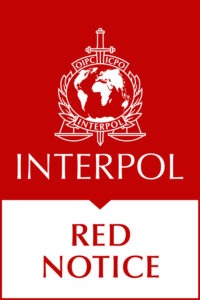Red Notice Removal Lawyer
Our Services: INTERPOL Red Notice Removal
An INTERPOL Red Notice can restrict movement, damage reputation, and disrupt personal and professional life.
At Otherside, we assist individuals and legal teams in challenging and removing Red Notices that have been unlawfully issued or misused.
Before founding Otherside, Charlie Magri served as a Legal Officer at the Commission for the Control of INTERPOL’s Files (CCF). That experience informs our approach to CCF access, deletion, and provisional measures.
What Is a Red Notice

A Red Notice is a request circulated by INTERPOL at the request of a member country. It asks police worldwide to locate and provisionally arrest an individual pending extradition, surrender, or similar legal action.
Although it is often described as an international arrest warrant, it is not one. Each member country decides whether to act on a Red Notice under its own laws. In practice, however, many authorities treat it as binding — leading to arrests, travel restrictions, visa refusals, and serious reputational harm.
Grounds for INTERPOL Red Notice Removal
INTERPOL’s Constitution and its Rules on the Processing of Data set strict limits on the information that can appear in its systems. A Red Notice must comply with these rules in both substance and purpose.
At Otherside, we seek removal where a notice breaches INTERPOL’s legal framework or international standards. The most common grounds include:
- Political or commercial motivation – the notice targets an individual for reasons unrelated to genuine law enforcement.
- Violation of due process or human rights – such as proceedings conducted in absentia, coerced evidence, or lack of judicial independence.
- Invalid or withdrawn criminal proceedings – the underlying case has been closed, dismissed, or time-barred.
- Procedural defects – the requesting country failed to meet INTERPOL’s procedural requirements.

How Red Notice removal works before the CCF
Proceedings for Red Notice removal take place before the Commission for the Control of INTERPOL’s Files (CCF) — the independent body within INTERPOL responsible for reviewing individual requests for access and deletion.
The process follows four key stages.
01
Analysis of the Case
Every Red Notice deletion starts with a detailed review of the notice and the underlying proceedings. We assess compliance with INTERPOLs Constitution and the Rules on the Processing of Data, then identify the strongest grounds to raise before the CCF, such as political character, procedural defects, or due process concerns.
02
Application before the CCF
Once the grounds are established, we prepare and file a written request for deletion before the CCF. The submission sets out the rule breaches and is supported by key documents, such as court decisions and procedural records. It is drafted in line with CCF procedure and supported by relevant CCF decision practice.
03
Monitoring of the Procedure
After filing, the CCF reviews the request and may seek observations from the requesting country and INTERPOLs General Secretariat. We monitor the procedure and timelines under Article 40 of the CCF Statute, including the nine month decision period from admissibility (subject to extension in exceptional cases).
04
Decision of the CCF
At the end of the review, the CCF Requests Chamber issues a written decision. If it finds the Red Notice non-compliant with INTERPOLs rules, it orders deletion. INTERPOLs General Secretariat then implements the decision and circulates the update to member countries.
Our Approach
Proceedings before the CCF demand precision, consistency, and a thorough understanding of the organisation’s internal framework. At Otherside, our work is shaped by direct experience inside the institution and by an approach built on four principles.
Case Assessment
Evidentiary Preparation
Procedural Precision
Alignment with CCF Case Law
Why Choose Otherside
Otherside focuses exclusively on proceedings before the CCF. We combine legal precision with direct institutional experience that few firms can offer.
Former CCF Legal Officer
Exclusive Focus on INTERPOL Proceedings
International Scope
Contact an INTERPOL Lawyer for Red Notice Removal
If you need help with Red Notice removal, we can assess the notice and advise on a CCF deletion request or urgent provisional measures. Contact us for a confidential review.

